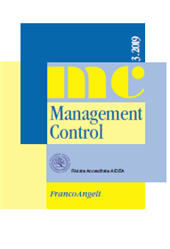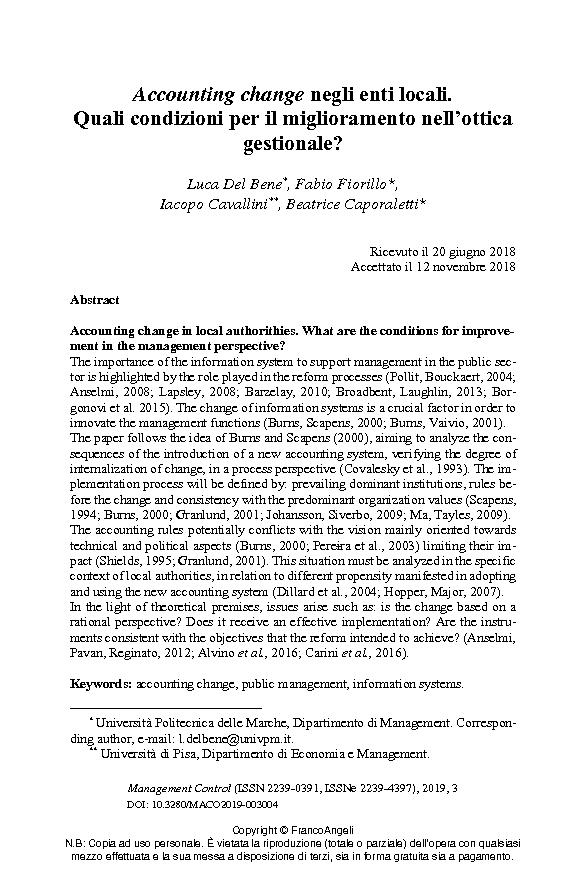Accounting change negli enti locali : quali condizioni per il miglioramento nell'ottica gestionale?
59-78 p.
The importance of the information system to support management in the public sector is highlighted by the role played in the reform processes (Pollit, Bouckaert, 2004; Anselmi, 2008; Lapsley, 2008; Barzelay, 2010; Broadbent, Laughlin, 2013; Borgonovi et al. 2015). The change of information systems is a crucial factor in order to innovate the management functions (Burns, Scapens, 2000; Burns, Vaivio, 2001). The paper follows the idea of Burns and Scapens (2000), aiming to analyze the consequences of the introduction of a new accounting system, verifying the degree of internalization of change, in a process perspective (Covalesky et al., 1993). The implementation process will be defined by: prevailing dominant institutions, rules before the change and consistency with the predominant organization values (Scapens, 1994; Burns, 2000; Granlund, 2001; Johansson, Siverbo, 2009; Ma, Tayles, 2009).
The accounting rules potentially conflicts with the vision mainly oriented towards technical and political aspects (Burns, 2000; Pereira et al., 2003) limiting their impact (Shields, 1995; Granlund, 2001). This situation must be analyzed in the specific context of local authorities, in relation to different propensity manifested in adopting and using the new accounting system (Dillard et al., 2004; Hopper, Major, 2007). In the light of theoretical premises, issues arise such as: is the change based on a rational perspective? Does it receive an effective implementation? Are the instruments consistent with the objectives that the reform intended to achieve? (Anselmi, Pavan, Reginato, 2012; Alvino et al., 2016; Carini et al., 2016). [Publisher's text].
Is part of
Management Control : 3, 2019-
Articles from the same issue (available individually)
-
Information
ISSN: 2239-4397
KEYWORDS
- Accounting change, public management, information systems



